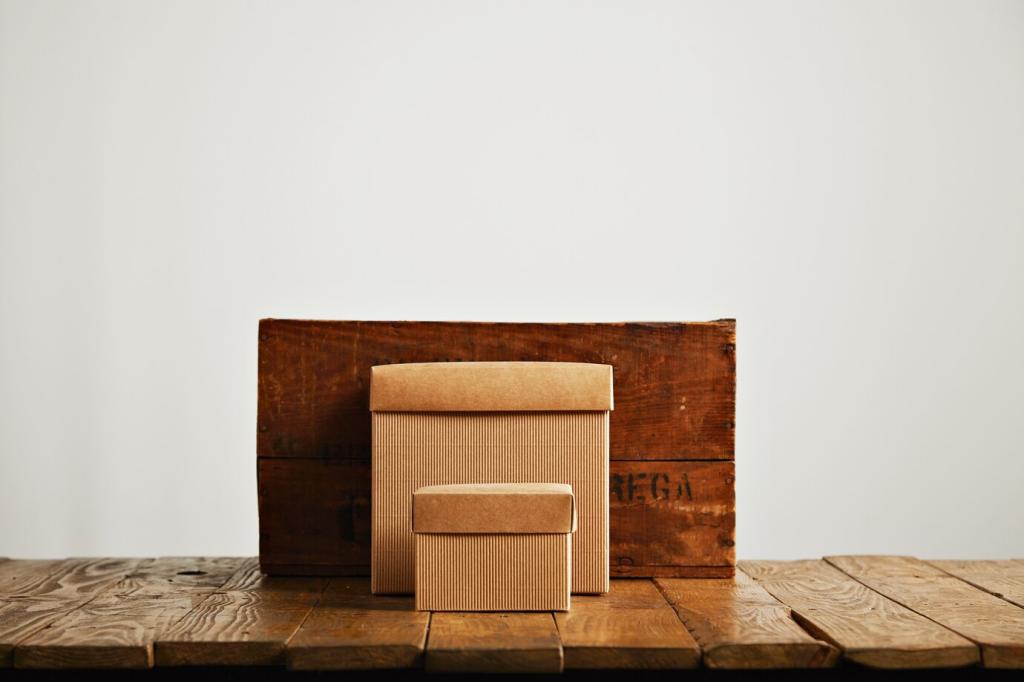Innovative Eco-Friendly Packaging Solutions Powered by AI
Discover how artificial intelligence is revolutionizing eco-friendly packaging. This comprehensive overview delves into the ways AI is fueling sustainable innovation, optimizing material usage, enhancing design, streamlining logistics, and enabling smarter end-of-life solutions. Explore the intersection of cutting-edge technology and environmental stewardship, and learn how savvy businesses are reimagining packaging for a greener future.
By leveraging AI-driven insights, companies can now accurately evaluate a vast array of packaging materials based on environmental impact, cost, durability, and recyclability. Advanced algorithms rapidly analyze life cycle assessments, carbon footprints, and supply chain data to suggest optimal materials that are both sustainable and functional. This targeted approach expedites the adoption of new, greener substrates and ensures that packaging design meets strict ecological requirements without compromising on quality.

AI-Driven Waste Reduction Across the Supply Chain
AI-powered forecasting systems bring precision to production schedules by accurately predicting demand for packaging based on market trends, seasonality, and real-time sales data. These insights help manufacturers minimize overproduction and reduce inventory surpluses, which in turn curbs material waste and associated emissions. The result is a leaner, more responsive supply chain that aligns packaging output with actual need.
Previous
Next
Personalized Packaging with Minimal Environmental Impact
Dynamic Print and Production Adjustment
AI-powered print solutions analyze incoming orders and customer preferences in real time, optimizing print runs and ink usage on demand. Only the necessary resources are used for each project, and errors are drastically reduced, eliminating reprints and wasted materials. The streamlined approach ensures that every personalized package is created as efficiently and sustainably as possible.
Predictive Inventory Management
With access to advanced forecasting tools, printers and suppliers can predict exactly how much raw material will be needed for personalized packaging orders. AI utilizes data from sales history, market trends, and customer behavior, adjusting inventory levels proactively. This reduces the risk of obsolete stock and material waste, ensuring that the supply matches true demand without surplus.
Automated Artwork Validation
Ensuring the accuracy of artwork in a mass-personalization context can be challenging. AI-driven validation systems check personalized designs for compliance with brand guidelines and print specifications. They automatically flag inconsistencies or errors before production begins, preventing wasteful misprints and re-dos, therefore further shrinking the environmental impact of tailored packaging solutions.
Previous
Next
Real-Time Quality Control Powered by AI
Advanced computer vision systems equipped with AI algorithms perform high-speed inspections on packaging lines, identifying defects such as improper sealing, cracks, or print errors. These systems run thousands of checks per minute, catching problems that human eyes might overlook. Early defect detection reduces the need for product recalls and wasted packaging, supporting a move towards zero waste and higher consumer trust.
Smart Packaging That Extends Product Life
Active Packaging Innovations
Active packaging technologies, guided by AI analysis, use embedded sensors and materials to interact with the product inside, controlling oxygen, moisture, or temperature. AI helps optimize which active compounds to deploy in specific products to prolong freshness, prevent spoilage, and reduce the frequency of wasteful disposals. This intelligence-driven approach results in both enhanced consumer safety and environmental conservation.
Smart Expiry and Freshness Monitoring
By leveraging data from embedded sensors, AI can accurately track real-time freshness metrics such as temperature, humidity, or gas concentration within packaging. This information is relayed to supply chains or even end consumers, informing them of true product status instead of relying solely on conservative expiry dates. Dynamic freshness tracking helps prevent early discards and cuts down on unnecessary waste generated by overly cautious shelf life estimates.
Advanced Traceability for Recalls and Safety
AI-enhanced traceability systems enable packaging to be scanned and tracked through every stage of the supply chain. In the event of a recall or quality issue, products are instantly located, and affected batches can be efficiently isolated, sparing untold resources that would otherwise be spent recalling or incinerating entire product runs. This level of intelligent oversight ensures greater safety while minimizing the ecological cost of errors.
Route Optimization for Lower Emissions
AI-powered transport planning software factors in vehicle capacities, delivery windows, real-time traffic data, and even weather conditions to route shipments efficiently. Smarter routing means fewer miles traveled, lower emissions, and less fuel consumed, all while maintaining delivery reliability. Companies benefit from a measurably smaller carbon footprint and customers receive packages faster and more predictably.
Load Efficiency and Cube Utilization
AI models simulate various packing configurations to find the best way to fill shipping containers, pallets, or trucks. By maximizing cubic volume and reducing empty space, businesses can ship more goods with less packaging, fewer shipments, and reduced transportation emissions. This level of accuracy in load planning also lowers packaging costs and supports broader zero-waste strategies.
Dynamic Return Logistics
The management of returned goods and packaging is often overlooked in sustainability discussions. AI brings flexibility and efficiency to returns, identifying the optimal collection points, consolidating shipments, and finding the best end-of-life route for packaging. Whether it’s reuse, refurbishment, or recycling, intelligent return logistics reduce environmental impact while maintaining customer convenience.
Facilitating Next-Generation Recycling and Circularity
Modern recycling facilities are deploying AI to identify packaging materials on fast-moving conveyor belts. Advanced cameras and machine learning algorithms distinguish between plastics, paper, metals, and composites with high accuracy. This improved sorting drastically increases recycling rates and purity, ensuring recovered materials can be repurposed for new packaging, and reducing reliance on virgin resources.
